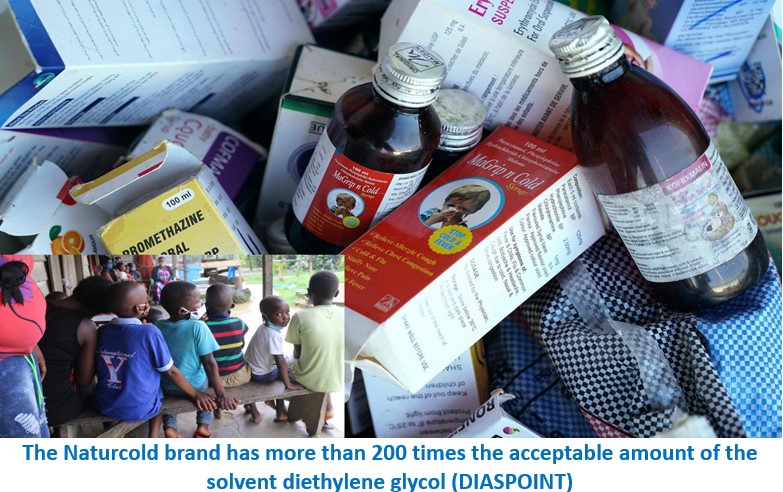Bogus British company caught selling toxic cough syrup in Cameroon
Post By Diaspoint | July 25, 2023

A company pretending to be British has been caught selling toxic cough syrup in Cameroon, with officials now racing to determine the true manufacturers of the product.
In the latest of a series of alerts about deadly contaminated medicines, the World Health Organization (WHO) said a cough syrup sold under the brand name Naturcold had more than 200 times the acceptable amount of the solvent diethylene glycol.
It is not yet clear where the toxic children’s medicine was manufactured. While the packaging lists the producer as ‘Fraken International (England)’, no company under this name exists in Britain, according to the UK’s health regulators.
“Enquiries are still underway to determine the origin of the product,” the WHO said on Tuesday, adding that it could be available in other countries.
“The product referenced in this alert may have marketing authorisations in other countries or regions. It may also have been distributed through informal markets to neighbouring countries,” a statement said.
The warning comes after the deaths of more than 300 children in Gambia, Indonesia and Uzbekistan were linked to similar cough syrup products made by other companies in 2022.
Child deaths
Investigators have expressed fears that the lethal ingredient is still circulating in global supply chains and, to this day, remain unsure of the origins of the toxin.
Although the WHO did not reference any fatalities in Cameroon in its alert on Tuesday, Bloomberg reported last month that Cameroonian officials were investigating whether Naturcold was linked to the deaths of a dozen children in the west African country.
The WHO said it was first made aware of concerns about the product in March, and countries including Nigeria issued alerts warning parents to avoid the cough syrup in April, after it was linked to the deaths of six children. But samples of the medicine were only made available to the WHO last month and analysed in a laboratory on June 27.
Read More from original source
